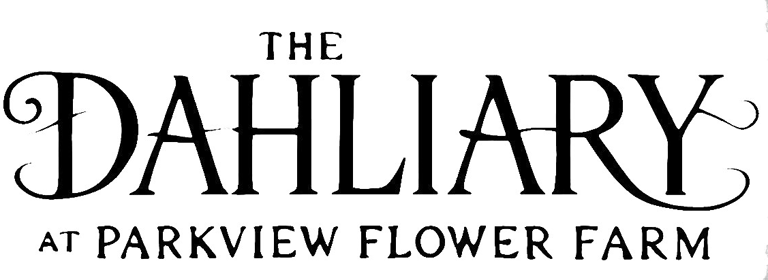Growing Practices
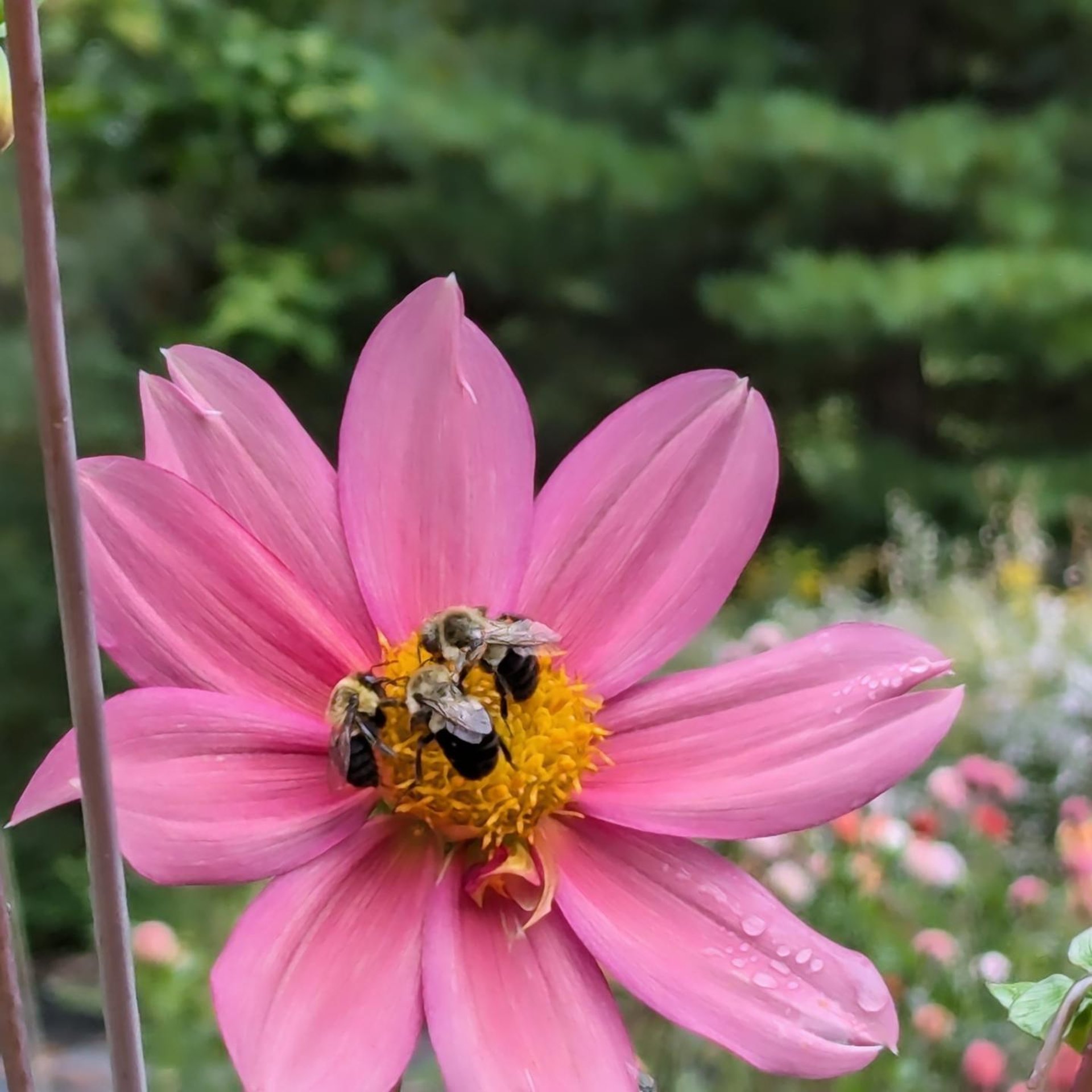
The Dahliary at Parkview Flower Farm is a registered and inspected nursery. We use eco-friendly, sustainable practices that prioritize the health and well-being of the earth and its inhabitants, from humans and four-legged friends, to bees and butterflies. The Dahliary is committed to offering quality plants, tubers, seeds, and florals. In order to provide our customers with the best quality products, we have very strict regiments for sanitation, Integrated Pest Management, and maintaining a healthy growing environment.
SANITATION: Proper sanitation helps reduce the transfer of viruses and bacteria from affected plants to healthy plants. Viruses and bacteria are a part of nature, and even the most sanitized gardens can contract diseases. However, a proper plan for sanitation, Integrated Pest Management, and maintaining a healthy growing environment will minimize the overall prevalence and spread. Regularly keeping your garden free of diseased plants, leaves, and materials is also important. Insects and pests are attracted to diseased plants and materials, and are a major vector for spreading viruses and bacteria. Because symptoms of viruses and bacterial diseases may not be physically apparent during the same growing season as it was infected, it is very easy to unknowingly transfer diseases from plant to plant without proper sanitation. To prevent this, all tools, protective wear, equipment, and surfaces should be disinfected in between plants. This is applicable whether you are harvesting stems, dividing dahlia tubers, or any other physical contact from plant to plant. Our farm uses a 10% bleach and water solution (9:1 ratio of water to bleach) as a disinfectant and we are continually in conversations with educators and testing labs to source the latest news and studies for additional prevention and disinfection methods.
INTEGRATED PEST MANAGEMENT: Our farm has a rigorous Integrated Pest Management (IPM) plan. We utilize organic, earth-friendly methods of regenerative agriculture that not only provide us with beautiful blooms and bountiful harvests, but also create a sanctuary for flora and fauna to thrive. In fact, creating a balance as nature intended will result in less work and stress. At certain points in the season, you will find aphids, and slime trails of slugs, and a host of hungry caterpillars. By creating a space in your garden for these pests to enjoy nature, too, you will be inviting the beneficial insects and predators that eat your pests to find a home in your gardens. By integrating companion planting, crop trapping, Brix management, preventative treatments for fungus and mildews, and introducing beneficial insects to your land with plantings that provide them a habitat, you will see dwindling numbers of pests on your blooms, find a deeper appreciation for nature's intricacies, and contribute to an ecosystem where all of nature thrives. New this year, our farm will be using the Growing Degree Days method for identifying when and how pest management should be incorporated, including preventative and maintenance measures. We are taking all of our cues from nature because, instead of relying on a weekly schedule that doesn't account for changing seasonality and weather pattern disturbances, we will track the signs from nature and implement our pest management plans on nature's timeline. The more we listen to nature and follow its patterns, the better success we are seeing in both reducing pest pressure on our beloved blooms and contributing to a thriving ecosystem for the abundance of wildlife that surrounds us.
HEALTHY GROWING ENVIRONMENT: A thriving garden begins beneath the surface with rich, healthy soil teeming with life. From beneficial organisms and microorganisms to essential microbes and organic matter, this dynamic ecosystem nourishes plants, improves soil structure, and enhances water retention. By cultivating soil health, you create the foundation for strong, resilient plants and a bountiful garden. Testing your soil annually is a smart first step toward creating a healthy growing environment. For less than $20, a soil test helps you save time and money, and also reduces the environmental impact by pinpointing nutrient excesses or deficiencies. With this insight, you can make precise adjustments to achieve optimal nutrient levels for your specific plants. By using proper watering methods, providing ground cover to reduce soil splashing, amending soil as recommended in a soil test, providing additional nutrients throughout the growing season, and maintaining a clean growing environment, you will see continuous improvement of your gardens, year after year.
DISEASED PLANTS: Plants displaying signs of virus or bacterial disease should immediately be culled, or removed from their growing area while testing is conducted. The Dahliary regularly tests stock for viruses, tracks transmission areas to identify the cause, and implements intervention and prevention strategies.
DAHLIA TUBERS: Because viruses like TSV and bacterial diseases like crown and leafy gall have an increasing prevalence in the dahlia community, all tuber stock intended for sale post-season are grown in individual grow bags, adequately spaced to prevent water contamination, and are identified with a SKU system that allows us to track which specific tubers came from a particular clump. If virus or disease is found in one plant, we will be able to identify, test, and remove all plants originating from that same clump.
DAHLIA ROOTED CUTTINGS: We are seriously committed to only using stock that was tested and virus-free the previous season for rooted cuttings. The cost to benefit analysis of this method, along with the peace of mind that all rooted cutting stock that leaves our farm is free of common dahlia viruses, is priceless.
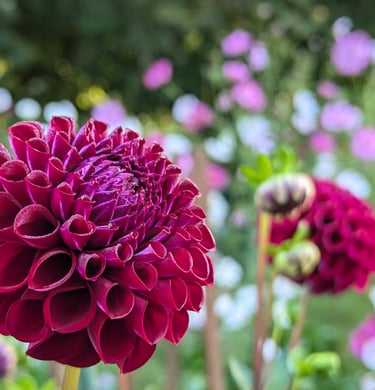

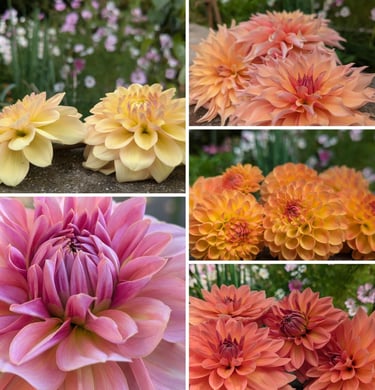

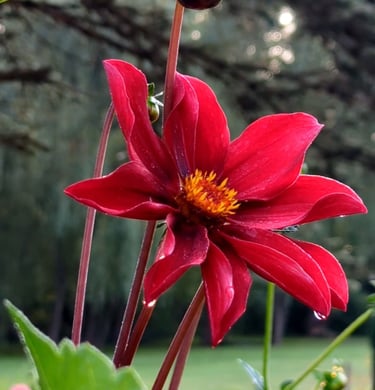

Experience Nature's Palette
